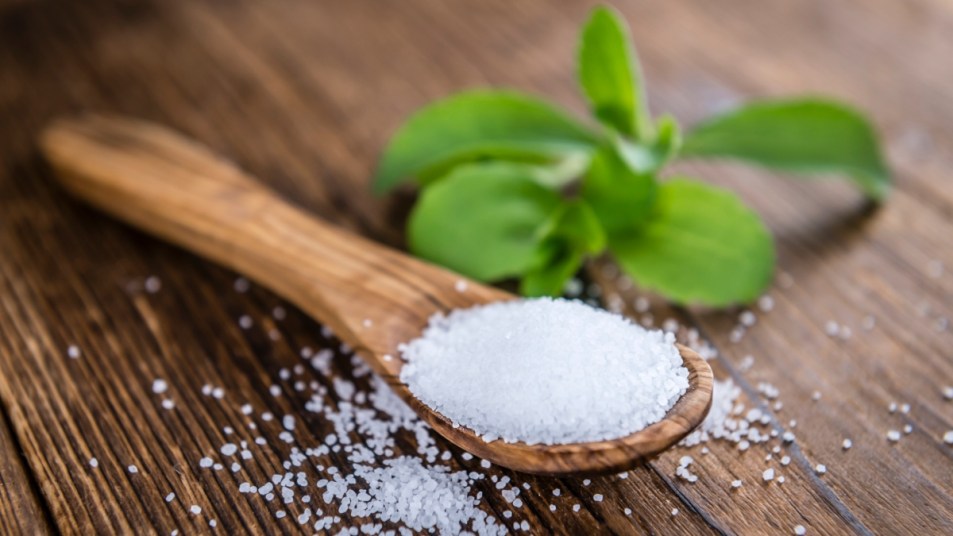Is Stevia the Best Alternative to Sugar? Maybe Not

Ready for a familiar scenario? You’re looking for a sweet treat but trying not to splurge on sugar. Candy doesn’t seem like the smartest option, and neither does that ice cream at the back of the freezer. But what if you could trick your body into thinking it got a sugar fix? You whip up a batch of cookies and use Stevia in place of sugar. Problem solved. However, there’s evidence to suggest that you might be better off just eating the real deal.
It’s time to discuss the great debate: Stevia vs. sugar. Stevia seems like the perfect swap. It’s 200 to 400 times sweeter than table sugar, so a little goes a long way. It’s made from a real plant and it has no calories. It may therefore be a good alternative for people who have diabetes. Those features sound good at first, but there’s more to the story.
Stevia vs. Sugar: The Benefits of Stevia
To better understand the difference between Stevia and sugar, we reached out to Alex Caspero, a registered dietitian, recipe developer, and nutrition consultant at Delish Knowledge. “Stevia is a plant native to South America that has been used as a sweetener for hundreds of years,” she tells First for Women. “While we don’t have many long-term trials on overall safety of Stevia, and it’s only been used as a commercial sweetener for the past few decades, more than 200 studies have demonstrated some type of safety. It’s currently classified as ‘Generally Recognized as Safe’ by the USDA.
“As an added bonus, Stevia requires lower inputs of land, water, and energy to produce the same amount of sweetness found in other natural sweeteners – an 82 percent reduction in carbon footprint for stevia compared with beet sugar and a 64 percent reduction compared with cane sugar.”
A study from the Journal of the Science of Food and Agriculture shows that Stevia lowers fasting blood sugar levels and post-meal blood sugar levels. In addition, a paper from the International Journal of Clinical Research and Trials states that Stevia may protect against inflammation and the development of insulin resistance.
The Benefits of Sugar
While there’s plenty of research that highlights the benefits of Stevia, other studies illuminate the downsides. According to the Endocrine Society, low-calorie sweeteners promote fat accumulation, especially in people who are already obese. In other words, fake sugar may stimulate cells to store more fat, just like real sugar. Receptors in the gut bind with low-cal sweeteners like Stevia, which signals the body to store energy in the form of fat droplets.
Caspero also points out that a few indulgences each week can prevent you from overeating. “In general, I’m not against baking with sugar in dessert recipes,” she says. “While sugar isn’t a healthy food, a small number of sweet treats, accounting for less than 10 percent of total calories, is considered in line with a healthful diet. You don’t need to give up sugar completely, and I strongly believe that you should enjoy desserts semi-frequently. That may be surprising coming from a dietitian. But study after study shows that when you want a certain food and restrict it, you are likely to overeat that same food the next time you are in contact with it.
“All that said, if you like the taste of Stevia then it can be a good choice to bake with, especially for diabetics. However, it can be much more costly and harder to find than regular table sugar and its bitter aftertaste is off-putting to some people. If eating a Stevia-sweetened dessert doesn’t help with your dessert craving, ditch it in place of the real sugar-sweetened stuff to reduce the chance of overconsumption next time around.” You heard it here! You can still enjoy that slice of cake, sugar and all.
















